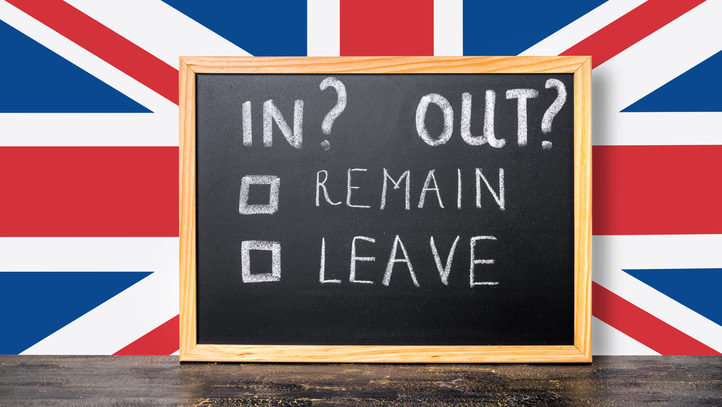In the News – Brexit
London—As shockwaves ring out from the United Kingdom’s historic vote to exit the European Union, young Brits are venting their frustrations. Most young people were on the “Remain” side, but an earlier proposal to lower the voting age had failed.
“I love waking up to be completely terrified about something that’s going to affect me yet I had no say in it,” says one teenager. Another tweeted, “This vote doesn’t represent the younger generation who will have to live with its consequences.”
“Leave” proponents are calling the victory Independence Day, saying the EU is a dying institution. But one young person tweeted, “Don’t you dare tell me this is ‘our’ Independence Day when 75% of 16-18 year olds would’ve voted remain #WhatHaveWeDone.”
Talk-show host James Corden, a Brit, tweeted, “I’m so sorry to the youth of Britain. I fear you’ve been let down today.”
Before the vote, author J.K. Rowling made a plea to stay in the EU: “No, I don’t think the EU’s perfect,” she wrote. “Which human union couldn’t use improvement? From friendships, marriages, families and workplaces, all the way up to political parties, governments and cultural economic unions, there will be flaws and disagreements. Because we’re human. Because we’re imperfect. So why bother building these ambitious alliances and communities? Because they protect and empower us, because they enable bigger and better achievements than we can manage alone. We should be proud of our enduring desire to join together, seeking better, safer, fairer lives, for ourselves and for millions of others.”
After results came in, British Prime Minister David Cameron announced he’ll resign, and financial markets throughout the world went haywire. Experts predict a domino effect, with other nations seeking to exit the EU.
Dutch politician Geert Wilders, who wants his country to follow the UK’s footsteps, says, “We want to be in charge of our own country, our own money, our own borders, and our own immigration policy.” Many UK voters on the “Leave” side took an anti-immigration stance.
Sources: bbc.com, cnn.com, ew.com
* * *
Discussion Starters for Student Small Groups
What might be some consequences—whether intended or unintended—of this vote? What effects do you think the decision will have on Britain’s morale? on its stability? on relationships among different generations?
In what ways can you relate (or not relate) to the sentiments young Brits are expressing? Do you ever feel as if your elders have let you down? Do you feel as if you have a voice in your country? your school? your family? your church? Explain.
Because teenagers have to deal with the long-term fallout of political decisions, should the voting age be lowered? Why or why not? What other ways might young people be able to influence political decisions, if they’re not allowed to cast ballots?
When authority figures tell you they know what’s best for you, how do you tend to react? When disagreements occur, do you try to get your own way? accept whatever decisions are handed down? try to work toward a compromise? Explain.
When human unions start to fray or rupture, how much effort should we put into fixing them? Is it always best to try to fix the existing relationship or bond, or is it sometimes necessary to move on and start over?
What types of groups or communities are you part of, and what have you been able to accomplish through them? Is it best to stay in a group, even if you don’t totally agree with it, just to be able to have more “doing power” than you’d have alone? Explain.
Do you join groups mainly for self-promotion and self-improvement? Or do you look for ways to help others and make the world a better place? Explain. When someone wants to leave a group, what’s the best way to exit?
Is it wrong to want to be in charge of your own decisions and “destiny”? What are some benefits and risks of being the sole decision-maker for your life? How can other people’s input and contributions help enrich and safeguard your personal decisions?
Scripture links: Proverbs 18:1-4; Ecclesiastes 4:9-12; Luke 15:11-16; Acts 2:42-47; 1 Corinthians 6:1-8; and Philippians 2:3-4.

